Mamun Kabir
Dhaka is among the world’s most noise-polluted cities, often leading global pollution rankings. Noise pollution is a significant and serious environmental issue, with levels rising uncontrollably due to a lack of public awareness and understanding. This problem has extended beyond Dhaka to rural areas. People of all ages are suffering from hearing loss due to the severe effects of noise pollution, which may worsen over time. Environmentalists have termed this unchecked noise pollution as ‘noise terrorism.’ Although laws exist to control noise pollution in the country, enforcement is minimal. Many people are either unaware of these laws or deliberately ignore them. Therefore, increasing public awareness and properly enforcing these laws are crucial to addressing the issue.
Excessive, sharp, unwanted, or uncomfortable sounds that disrupt normal human physiological activities and cause various adverse effects on the body and mind are considered noise pollution. According to a World Bank report, Bangladesh is among the countries at highest risk of pollution-related deaths. Approximately 26 percent of people in Bangladesh die each year due to pollution-related illnesses, compared to 16 percent globally. The American Heart Association reports that for every 10-decibel increase in noise levels, the risk of stroke increases 14-fold for people of any age and up to 27 percent for those over 65 years old.
Human ears are highly sensitive to normal sounds, and unnecessary and excessive noise seriously impairs both physical and mental functioning. The harmful effects on children can be especially severe. Beyond ear problems, noise pollution leads to various health and behavioral issues. Loud and unusual ambient noise significantly diminishes people’s ability to think and work, resulting in increased intolerance, quarrels, and even physical altercations. High noise levels can cause irritability, mental disturbances, fatigue, inattention, and deafness. The National Association of Noise Control in the United States notes that high noise levels can cause complex diseases such as nerve problems, ulcers, headaches, high blood pressure, suicidal tendencies, and heart disease. Even unborn babies can develop birth defects due to noise pollution. Additionally, noise pollution can lead to respiratory problems, digestive issues, anxiety, irritability, hearing loss, sleep disturbances, memory loss, mental exhaustion, and other harmful physical and mental conditions.
One of the major causes of noise pollution is vehicles. The unplanned sale and purchase of vehicles and their unnecessary use are increasing noise pollution levels. Typically, noise pollution results from the sounds generated by buses, lorries, automobiles, trams, trains, airplanes, and the frequent and uncontrolled use of various electric and hydraulic horns, with noise levels reaching 90 to 110 decibels or more. This makes people’s lives miserable. Loud noise from factories and the misuse of machinery in building construction also cause extensive noise pollution in the vicinity. Loud noises and screams from TVs, radios, tape recorders, music systems (DJs), loudspeakers, and firecrackers used in weddings, fairs, and parties contribute to noise pollution. Social events, political meetings, gatherings, marches, bazaars, and the unnecessary use of horns in VIP vehicles also cause noise pollution. Recently, the trend of emergency sirens in private vehicles has been increasing alarmingly.
Article 32 of the Constitution of Bangladesh guarantees the right to life as a fundamental right. This right to life includes a quality life. Therefore, if a person suffers immediate or long-term damage due to noise pollution or if their normal life is disrupted, they can seek remedies against loud noise based on the Constitution.
In accordance with the guidelines for making rules for noise pollution control in section 20 of the Environment Protection Act-1995, the Noise Pollution Control Rules-2006 were formulated, specifying noise levels in different areas. These regulations prescribe noise levels for residential areas, quiet areas, mixed areas, commercial areas, and industrial areas, considering day and night. The same provision is stated in Schedule 4 of The Environmental Conservation Act, 1997. As per Schedule 5, the noise level of vehicles is also specified. Additionally, Section 46 of the Road Transport Act-2018 states that any device or parts that pollute the environment, such as horns or loud engines, cannot be used in motor vehicles. Section 46(4) further states that no defective, dangerous, prohibited, or restricted motor vehicle shall be allowed to operate on the road or highway.
According to the Noise Pollution Control Rules-2006, the use of machinery for construction work is prohibited from 7:00 pm to 7:00 am. No brick or stone-breaking machine shall be used within 500 meters from the end boundary of a residential area. Residential areas should be kept between 55 decibels during the day and 45 decibels at night. In quiet areas (areas adjacent to hospitals and schools), up to 50 decibels during the day and 40 decibels at night are acceptable. Mixed areas (residential and commercial areas) can have up to 60 decibels during the day and 50 decibels at night. However, these rules do not apply to religious rituals, official work of law enforcement agencies, government institutions, state important day events, aircraft, railway cars, ambulance or fire brigade vehicles, or propagation of danger signals of natural calamities. According to section 9 of the Noise Pollution Control Rules-2006, equipment exceeding the noise level can be used in any open or semi-open place outside the silent area for any social event, function, concert, cultural or political meeting, subject to the permission of the appropriate authority.
According to Section 17 of the Rules of 2006, if the noise level is exceeded, the officer in charge can enter any building or place at any time, seize the equipment used in the commission of the crime, and punish the convicted person with imprisonment for a term not exceeding one month, a fine not exceeding 5000 taka, or both. If the same offense is committed again, the punishment is imprisonment not exceeding six months, a fine not exceeding 10,000 taka, or both (Section 18).
Additionally, according to Section 268 of the Penal Code-1860, if a person causes harm to another person through illegal acts involving water, electricity, gas, fire, heat, or noise, it will be considered a public nuisance. In this case, according to Sections 132(a) to 143 of the Code of Criminal Procedure-1898, the District Magistrate or the Executive Magistrate can take all necessary measures for the removal of this public nuisance or issue restrictions.
The current state of noise pollution is very alarming and is slowly becoming an epidemic due to a lack of awareness. However, this problem is man-made and solvable. A little self-awareness and law-abiding behavior can control this problem. The provisions of fines for excessive noise generation or pollution in the existing law are insufficient and need to be increased, with appropriate steps taken for enforcement. Additionally, people should be more tolerant and patient. Unnecessary and intrusive honking should be stopped, and the use of music or instruments should be confined to venues during social events. Ultimately, noise pollution can only be controlled by changing human behavior.
Author: Mamun Kabir, Manager, Communications and Advocacy of Waterkeepers Bangladesh

